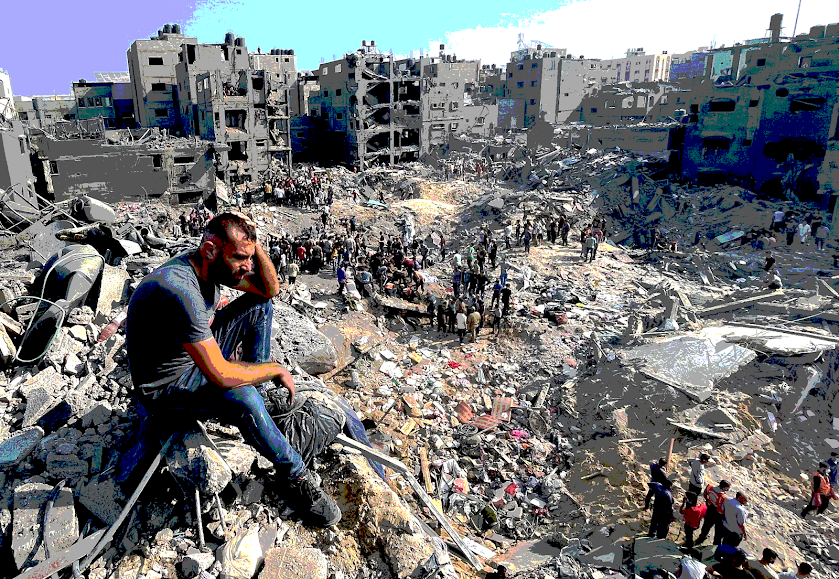Myanmar Spring Chronicle – View from September 26
(MoeMaKa, September 27, 2025)
An era where the world seems to be drifting in a darker direction
The United Nations was founded in June 1945, only months after World War II ended, with the aim of preventing future world wars. In the Second World War—where some 70 million people died—not only the major imperial powers and would-be empires that unleashed war, but also countries long subjected to colonial rule, became battlefields where both combatants and civilians perished.
From 1939 to 1945, nations fought with all the economic, military, and technological power they had. Three months after the war ended in Europe, two atomic bombs were dropped on Japan, killing hundreds of thousands and bringing the war in Asia to a close. The hope after that catastrophe was that such wars would not recur for decades to come, which spurred the creation of the UN. Britain, the United States, Russia, and other countries became founding members.
The UN’s purpose was to forestall another world war by providing a venue to discuss disputes, forge international agreements and binding rules, and apply non-military measures when necessary. Yet 80 years on, in 2025, the world again feels close to war, while the UN is increasingly regarded as a body for humanitarian relief, refugee assistance, and development programs. In particular, the great powers—especially the permanent members of the Security Council—have come to treat it as little more than a neighborhood charity or a stage for political speeches.
At the current UN General Assembly in New York, the U.S. president decided not to issue a visa to a Palestinian government representative, even though nearly two years of Israel’s “eliminating Hamas” campaign has left more than 60,000 civilians—children, women, and the elderly—dead in Gaza. In the roster of leaders’ speeches, President Trump castigated the UN, criticized Western allies for accepting migrants, and dismissed climate-change warnings, while boasting—shamelessly, in this writer’s view—that he had halted wars between nations. For years now, some powerful states with veto rights at the Security Council have flouted international law and norms, rendering UN decisions and calls to action ineffective.
Although the UN has condemned Israel’s campaign in Gaza—which, backed by U.S. and some Western weapons, munitions, technology, and intelligence, has entailed mass killing, blockades of food and water, and other acts the author calls genocide—no country has been able to stop it. What is happening is not the eradication of Hamas, but plainly a project of territorial expansion designed to force more than two million Palestinian civilians to resettle in neighboring or regional states. Such actions are possible because of the military, financial, and diplomatic cover provided by a superpower like the United States, often justified with untenable arguments.
Given all this, the UN’s inability to act decisively is no longer surprising. Eight decades after its founding, powerful, mid-power, and nuclear-armed states are increasingly forming military alliances rather than seeking solutions at the UN. NATO—once the U.S., Canada, and Western Europe—has expanded over the last 20–30 years to include some former Eastern European and Scandinavian states; today’s Russia–Ukraine war is, in part, rooted in NATO expansion.
In the Indo-Pacific there are the QUAD, AUKUS (Australia–UK–U.S.), ANZUS (Australia–New Zealand–U.S.), and U.S. bilateral security treaties with Japan, the Philippines, and South Korea—not new, but still operative. On the opposing side sits the SCO (Shanghai Cooperation Organization). Recently, worried by Israel’s military posture in the Middle East, Saudi Arabia signed a security agreement with nuclear-armed Pakistan—a new development.
In this context, Ukraine’s President Zelensky has said that, drawing on over three years of war experience, without strong alliances and great-power backing, nothing else works; in today’s world, military alliances are what truly guarantee security. Read this way, the world is shifting from international law, treaties, and rules toward a system where military power decides outcomes.

